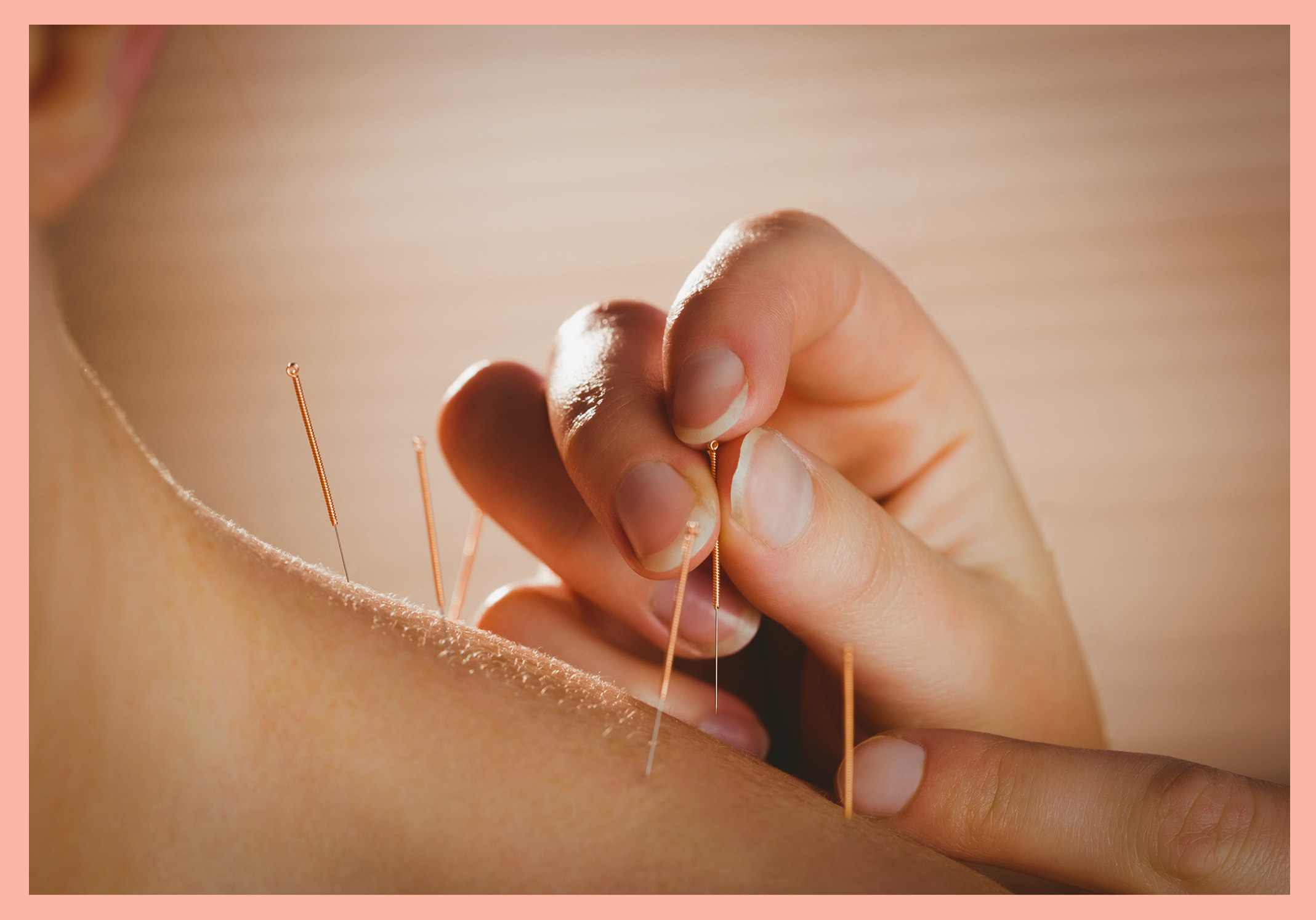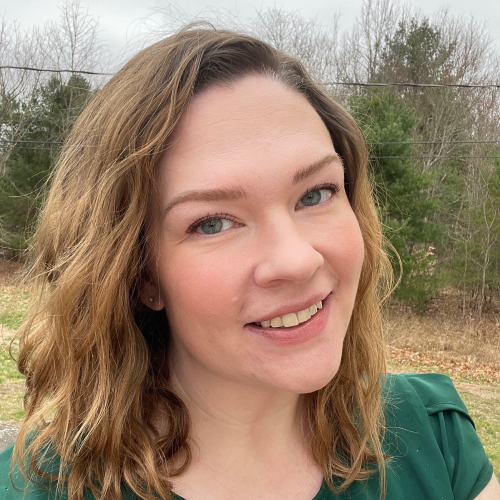
Published on Mar 25, 2024
Last modified on Sep 24, 2024
Can Acupuncture Help With Menopause Symptoms?
8 min read

For those of us who aren’t familiar with the practice, the word “acupuncture” might prompt an immediate “ouch!” (Spoiler – it doesn’t actually hurt.) We spoke with Seanna Sifflet LAc, MSW, a social worker turned acupuncturist, about the alternative medicine practice and how it may help treat symptoms of menopause. Seanna was formerly the staff acupuncturist at One Medical, and has a Masters in Chinese Medicine with over 20 years of experience in the medical field.
At Elektra, we celebrate healthcare that is integrative and holistic, treats the whole person, and validates individual experiences. We know that some aspects of effective care can exist outside of Western medicine. Our priority is to facilitate access to effective treatments that support the individual.
What exactly is acupuncture?
Acupuncture is a 2500 year old practice (at least), originating from traditional Chinese medicine (TCM). The technique involves the insertion of very fine needles into the skin and is used to treat a variety of health problems, from back pain to migraines, and menopause symptoms (more on that shortly).
It’s important to note here that TCM is based on different foundational principles than Western medicine, including the belief in yin and yang, opposing energies that constitute the life-force energy known as qi (pronounced “chee”). In a healthy person, qi will flow freely through the body and its meridians, which are essentially pathways for energy – you can think of it like a freeway system. The energy system is influenced by a number of factors, including diet, weather, and the environment. When there is a block to the energy flow, or too much or too little energy, illness is thought to occur; this is where treatments like acupuncture come in. Through the stimulation of acupoints along the body, acupuncture can re-route and unlock energy flows, thus restoring balance.
Okay, but what does this have to do with menopause?
Well, like many constituents of our body, including estrogen/oestrogen, qi begins to naturally deplete as we age, resulting in menopausal symptoms, according to TCM. Techniques like acupuncture are thought to restore some of that depleted energy.
Everyone going through menopause has a different experience and unfortunately, many patients seeking care can only access piecemeal treatment options. Acupuncturists seek to identify the root cause of a patient’s symptoms in order to provide personalized treatment, which Seanna conceptualizes as an act of harmonizing:
“If 10 people are coming in for hot flashes, they can have 10 different energetic diagnoses that are in disharmony. We [acupuncturists] then take your unique disharmony and we try to harmonize it. So it’s not like it’s not a cookie cutter diagnosis.”
“If 10 people are coming in for hot flashes, they can have 10 different energetic diagnoses that are in disharmony. We [acupuncturists] then take your unique disharmony and we try to harmonize it. So it’s not like it’s not a cookie cutter diagnosis.”
Keep reading to learn which menopause symptoms acupuncture can treat ⬇️.
What menopause symptoms can acupuncture treat?
Hot flashes
Unpleasant, inconvenient, and unfortunately common, vasomotor symptoms like hot flashes and night sweats affect up to 75% of those in the menopausal transition. While the exact mechanics behind hot flushes are hazy, research suggests that changing hormone levels may be a culprit—shocker, we know.
Fortunately, acupuncture may help reduce frequency and severity of hot flashes for up to six months following a course of treatment. From a TCM perspective, hot flashes are caused by, fittingly, the build-up of heat in the body, which qi would normally be able to help regulate. During menopause though, when qi is thought to be depleting more rapidly, the body’s self-regulation faculties are impaired. Acupuncture helps restore and move the necessary energy around the body in order to cool the heat.
Laura Stratte, RN, shares about her experience with acupuncture while undergoing treatment for breast cancer:
“I did acupuncture after every round of chemotherapy, with the hopes that it would mitigate side effects – specifically nausea and hot flashes – and I’m happy to report that I had minimal side effects! It’s hard to say that acupuncture was the definitive reason for my experience, but I feel like it likely contributed, and there are some studies that suggest acupuncture can help manage hot flashes for women undergoing breast cancer treatment. If nothing else, each treatment was an hour-long relaxation session, which I desperately needed at the time!”
Mood
Mood disorders are some of the main health conditions patients seek acupuncture treatment for, whether caused by menopause or completely unrelated. In TCM, acupuncture is thought to improve mood through the same process as hot flashes – by harnessing heat in the body.
“With mood, in terms of anxiety, for instance, we can look at anxiety as the result of too much heat in the system,” Seanna says. “What TCM tries to do, through acupressure points and balancing the meridians, is to get rid of heat…And when we get rid of heat in the system, the body gets a little more grounded, and calmer, and more present.”
“What TCM tries to do, through acupressure points and balancing the meridians, is to get rid of heat…And when we get rid of heat in the system, the body gets a little more grounded, and calmer, and more present.”
While more research is needed to understand the role acupuncture plays in treating mood swings and other mood disorders, recent studies support the efficacy of acupuncture treatment for depression, in particular. As we know, mood is also deeply connected with sleep, which acupuncture is believed to support…
Sleep and insomnia
Sleep majorly impacts our physical and mental well-being, and unfortunately, many of us in perimenopause don’t get enough. This is in part due to hot flashes, which up to 80% of menopausal women experience, sometimes smack in the middle of the night. Declining melatonin and fluctuating hormones during menopause can also contribute to sleep disturbances, as well as a myriad of non-hormonal factors.
Some studies suggest that acupuncture may improve sleep quality and other symptoms of insomnia, the mechanics of which TCM understands through the lens of nervous system regulation, reduced stress, and decreased lethargy. In other words, acupuncture can improve quality of life and sleep by proxy.
What can I expect at my first acupuncture session?
An initial consultation with a licensed acupuncturist can take anywhere from an hour to an hour and a half, which allows the practitioner to get the full picture of any possible influences to your health. Here’s what to expect:
1. Comprehensive intake 📋
Patients can expect to fill out a questionnaire with some of the same questions asked during a primary care intake (like physical symptoms, exercise and diet tendencies, work-life balance and sex life), but an acupuncturist’s intake will likely be more specific. The intake process will inform the treatment plan including areas of focus for needle placement, and any complementary medications/supplements and diet recommendations.
2. Tongue and pulse check 👅
Like a women’s health primary care provider, an acupuncturist will do a pulse check, but they will also evaluate a patient’s tongue, which in TCM is divided into sections, each relating to meridians or organs in the body. This evaluation provides insight into where there may be too much or too little heat in the body, or any energy blocks. Don’t worry if you’ve just eaten an onion bagel – practitioners have seen (and smelled) it all.
3. Treatment 🪡
Once your evaluation is complete, the acupuncturist will begin treatment, typically placing between 5-20 needles as the diagnosis indicates. The insertion is almost painless, and at worst you can expect to feel a mild, and temporary ache. Needles will be left for anywhere from 20-40 minutes.
Following a visit, some patients feel energized, while others feel relaxed–everyone responds differently. Seanna advises that two to three treatments should be enough to determine how the practice is working for you.
Many acupuncturists, like Seanna, hold certifications in herbalism and will offer supplements or diet recommendations in concert with acupuncture treatment. It’s important to note here that while herbal medicine is not subject to the same credentialing and licensing protocols as Western medicine, the treatment is still medicine, and as such should be administered under the supervision of a certified herbalist.
Where can I find an acupuncturist?
During a search for any provider, word of mouth can be an effective way to find trustworthy recommendations. Groups like FaceBook and MeetUp are great for crowdsourcing recs, and you can also use credible databases like Acufinder and (NCCAOM) to search for a provider. The important part is that you find a licensed provider who you feel comfortable with.
The average cost for a private session is between $70 and $150, but many insurance plans are moving to cover acupuncture as preventive care. Costs for community acupuncture sessions can be more financially accessible, and are often offered on a sliding scale. These sessions typically take place in a large open room, with multiple people being treated at once, which is a great option for families or friends who want to be treated together.
Interested in acupuncture, but also want to explore Western treatment modalities like hormone replacement therapy? Check out our full guide to HRT.


